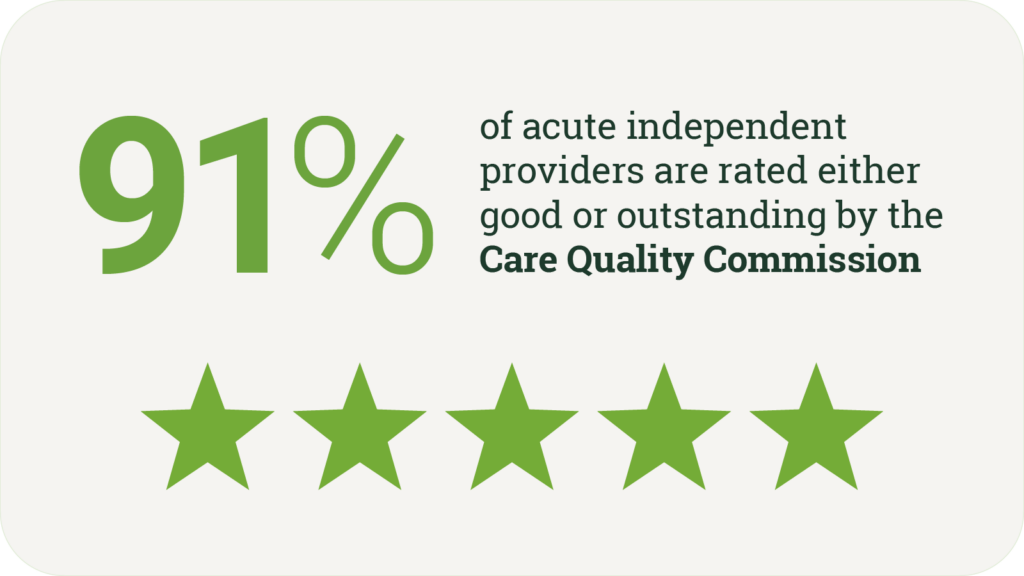
Over 9 in 10 independent hospitals now rated "Good" or "Outstanding"
08/03/2023
Analysis we have undertaken has shown that for the first time, nine out of 10 independent hospitals have ‘Good’ or ‘Outstanding’ overall ratings from the health and care regulator, the Care Quality Commission (CQC).
Responding to the new analysis, David Hare, CEO of IHPN, said: “This is a strong indication that the general standards of care and patient safety in the private sector are higher than they have ever been.
Dawn Hodgkins, Director of Regulation, said: “Despite the huge challenges presented by the pandemic and ongoing health system recovery, this demonstrates the commitment of clinicians and leaders across the independent sector to deliver the very best quality of care and the safest services.
“I’ve been really encouraged by the improvements I’ve seen in the culture of many providers, where there’s been a better focus on creating an open, learning environment where improvement is actively sought, with greater openness and honesty.”
Hodgkins adds: “A good indication of this has been in the increasing numbers of Freedom To Speak Up (FTSU) Guardians that providers are empowering – there are now nearly 230 guardians operating across the sector.”
IHPN Medical Director, Dr Howard Freeman said: “One of the key ways we have seen improvements is through better clinical governance. We now have better systematic, written standards and frameworks and that is now showing up in providers’ CQC ratings which is incredibly pleasing.”
Led by former National NHS Medical Director, Sir Bruce Keogh, the MPAF contains key principles to strengthen and build upon the medical governance systems already in place in the sector and sets out expected practice in a number of key areas, which providers are expected to adhere to.
Hare concludes: “Achieving this level of consistent high performance is really encouraging. It’s a good indication that patients can really trust the quality of care in the independent sector.
“But, we know providers are committed to maintaining and improving these already high standards, so the journey doesn’t stop here. “There’s still more to do to work collaboratively and closely, as a system, with the NHS and with the key regulatory and professional standards agencies to make sure we are doing everything we can to deliver world-leading safety and quality of care to patients.”
